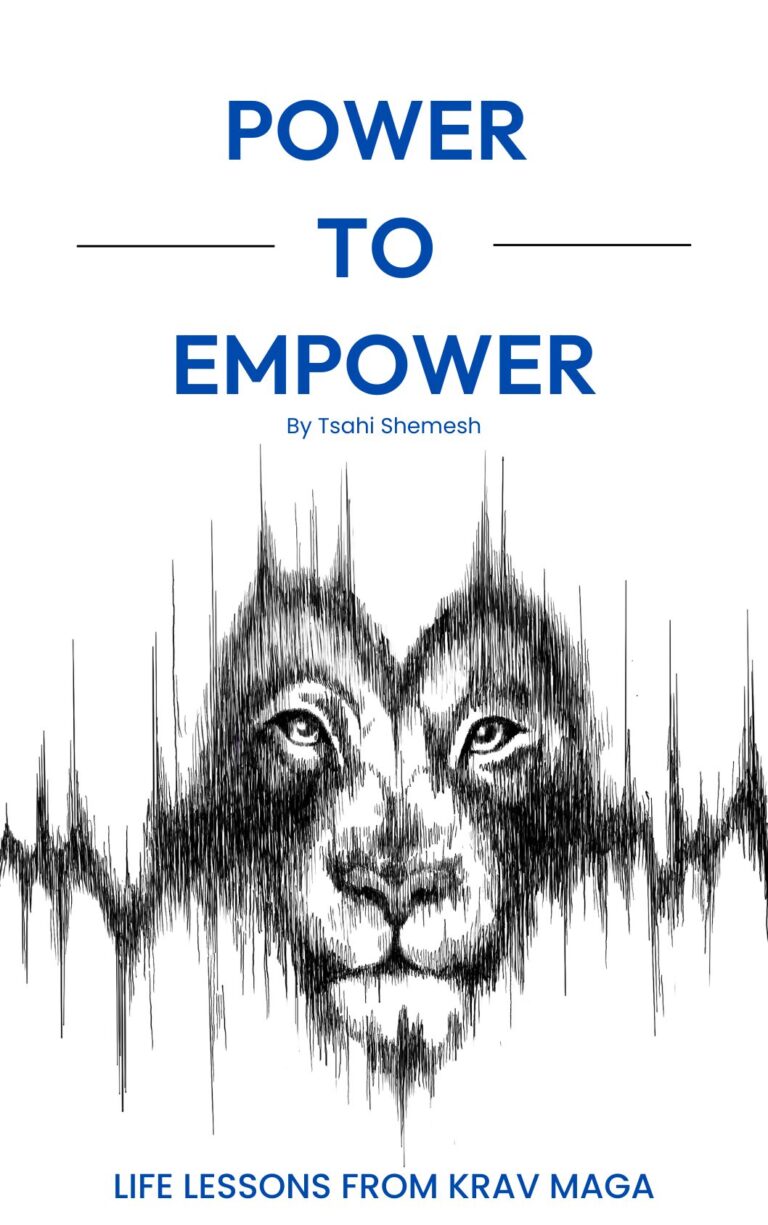How to Be a Good Training Partner: Key Tips for Krav Maga Success
In recent weeks, I have had several conversations with new members who are still learning the “code of conduct” on the mat. By that, I mean understanding what it takes to be a good partner during training sessions. This essay aims to address all those questions and concerns, exploring the qualities and behaviors essential for being a good training partner in Krav Maga or any martial art.
These principles ensure a safe, productive, and enjoyable training experience for both partners and extend to various aspects of life, providing a psychosocial and psychological perspective.
Safety First
Some students believe that training hard is always the right way and the only way to train. Others ignore their own injuries and ask their partners for more resistance than their bodies can handle. Prioritizing the safety of your partner is paramount. This means controlling your strikes and practicing proper techniques and accuracy while being mindful of your partner’s physical limits.
Each student has a different body, injuries, and skill levels, which must be respected to prevent injuries and build a trustworthy “training relationship.” Safety is not just about physical well-being; it also involves creating a psychologically safe space where partners feel comfortable expressing their limits and concerns without fear of judgment or ridicule. One’s “comfort zone” may change from one training session to the next. It’s on YOU to communicate it; it’s not just on your partner to ask!
Cleanliness
Training can involve intense physical activity, leading to sweat and, as a result, unpleasant body odors. You should maintain your personal hygiene by wearing deodorant and bringing a towel to wipe down sweat. Changing shirts if needed, especially during groundwork or close-contact drills, helps ensure that training remains a pleasant experience for everyone involved. This attention to cleanliness reflects respect for your partner, making it easier for them to focus on learning rather than being distracted by discomfort.
Communication
Clear communication is essential in any partnership. In training, this means discussing expectations and resistance levels, giving and receiving feedback, and addressing any concerns or discomforts. Don’t assume; be sure to converse. Communicate your injuries and your “hard no’s!” and anything else you believe can help!
The golden rule you learned in preschool applies here: don’t do to others what you wouldn’t want done to you. While some people embrace aggression and pain, others don’t. It’s important to understand and respect these differences. If you want to feel pain, it doesn’t mean your partner does. Effective communication fosters mutual understanding and respect, creating a harmonious training environment for all participants.
Mutual Respect
Treating your partner with respect, regardless of their skill level, is fundamental. The nature of training self-defense and fighting skills involves full contact, often leading to some discomfort. Different people have different comfort zones. Some don’t like to be choked hard, while others prefer it to understand how their body would react. Respecting these boundaries is crucial for building trust and maintaining a positive training atmosphere.
Trust and Integrity
The amazing thing about full-contact training is the immediate trust people build with one another. Your training partner might have been a stranger to you an hour ago, and this random stranger is trusting you to choke them or hug them so you can learn how to get out of it.
Building and maintaining trust through ethical behavior and reliability is essential. Trust is the foundation of any successful partnership. In Krav Maga, this means being honest about your abilities, admitting mistakes, and ensuring your partner’s safety at all times. Integrity involves consistently doing the right thing, even when no one is watching. This reliability creates a sense of security and predictability, which is crucial for effective learning and growth.
Support and Encouragement
Encouraging your partner’s progress and celebrating their achievements is an add-on value of being a good partner. Positive reinforcement boosts confidence and motivation, fostering a supportive environment where both partners can thrive. It’s important to acknowledge not just major milestones but also small victories, as these contribute to overall progress and morale.
At each test level, we see those beautiful moments on the mat when the testing students are exhausted but still performing difficult drills. The room always cheers for them, giving them the back-wind they need to continue!
Focus and Discipline
Staying focused during training, following the instructor’s guidelines, and maintaining discipline in your practice are essential qualities. Discipline ensures that you and your partner are learning effectively and safely. It also shows respect for the training process and the effort both partners are putting in. A focused and disciplined approach leads to better outcomes and a more rewarding training experience.
Adaptability
Adjusting your intensity and techniques based on your partner’s experience level and comfort is crucial. Some people like to train more intensely than others. Checking in with your partner to see what level of intensity and resistance they are comfortable with is important. Not only does this respect their comfort level, but it also keeps both partners safer in training. Adaptability requires empathy and an understanding of your partner’s needs and limitations, which are crucial for effective collaboration.
Consistency
Being reliable and consistent in attending training sessions and putting in effort during practice shows commitment to your partner and the training process. Consistency builds trust and demonstrates that you are a dependable partner. It also ensures continuous progress, as regular practice is essential for skill development.
Patience
Being patient with your partner’s learning process is essential. Allow them to make mistakes and learn at their own pace. Patience fosters a supportive environment where partners feel comfortable experimenting and learning without fear of judgment or pressure. This psychological safety is crucial for effective learning and personal growth.
Mutual Learning
Recognizing that both partners can learn from each other and contribute to each other’s growth and improvement is important. No matter the skill level, everyone has something valuable to offer. Mutual learning promotes a collaborative approach, where both partners benefit from each other’s strengths and perspectives. This collaborative spirit enhances the overall training experience and fosters a sense of community.
Awareness
Staying aware of your surroundings, your partner’s reactions and any signs of fatigue or injury is crucial. Awareness ensures that you can respond appropriately to any issues that arise, maintaining a safe and productive training environment. It also involves being attuned to your partner’s emotional and psychological state and providing support and adjustments as needed.
When you follow these guidelines, it is safe to assume that ego wouldn’t take part in your practice. This leads to friendships, respect, increased motivation, and overall, helps you build another skill. The mat is a microcosm of the outside world. All of the above principles work in all kinds of relationships, including those between lovers, business partners, friends, and even strangers.
When you train, remember that everyone on the mat has a story to tell. Everyone has issues to work out, and while you practice self-defense, this is not self-practice. You are part of a group of people who, just like you, want to be strong, safe, and supported. The training environment must remain a safe haven. By being a good partner on the mat, you contribute to a culture of mutual respect, learning, and growth that extends beyond the training mat into all aspects of life.
Do something amazing,
Tsahi Shemesh
Founder & CEO
Krav Maga Experts

